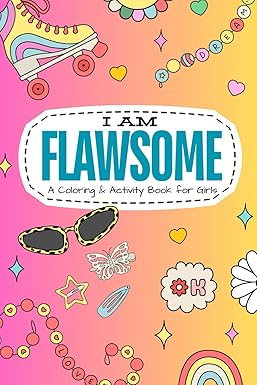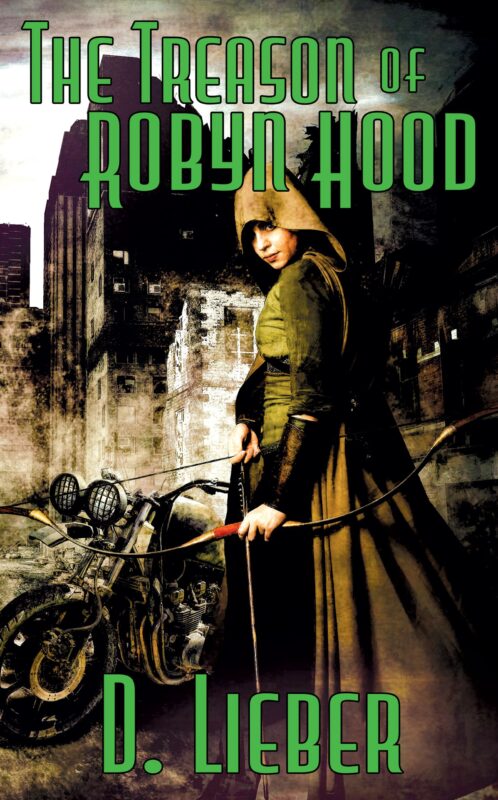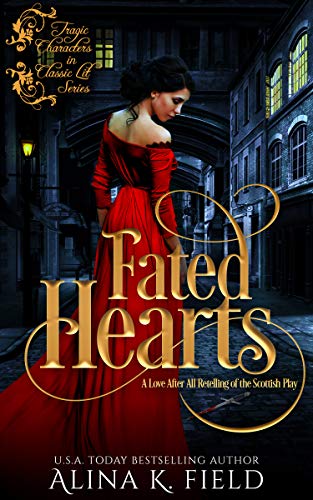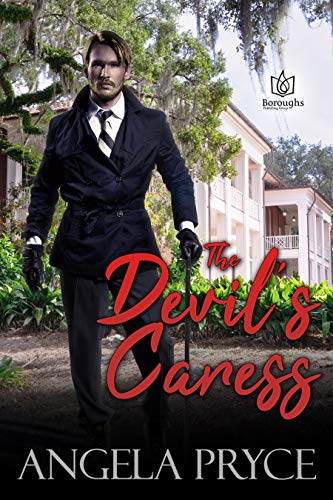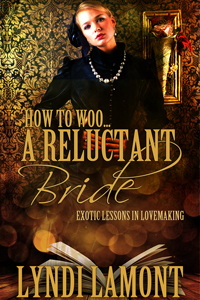Dianna Sinovic, Featured Author
March 31, 2024 by Dianna Sinovic in category Featured Author of the Month tagged as Dianna Sinovic, Featured Author of the Month, Quill and Moss, Short Stories
Author of the Month: Dianna Sinovic

Dianna is a contributing author in the last three anthologies from The Bethlehem Writers Group, An Element of Mystery: Sweet, Funny and Strange Tales of Intrigue, Fur, Feathers, and Scales, Sweet, Funny Animal Tales and Untethered, Sweet, Funny & Strange Tales of the Paranormal. She has also contributed stories for the Bethlehem Writers Roundtable ezine, including “In the Delivery.”
Born and raised in the Midwest, Dianna has also lived in three other quadrants of the U.S. She writes short stories and poetry, and is working on a full-length novel about a young woman in search of her long-lost brother.
She is a member of Sisters in Crime, Horror Writers Association, The American Medical Writers Association, and The Bethlehem Writers Group, LLC.
Dianna also has a regular column here on A Slice of Orange, titled Quill and Moss, in which she frequently includes short fiction.
Below, you can also listen to Dianna read her short story, “Cold Front” from the GLVWG Writes Stuff anthology.
Other books by Dianna Sinovic
Drenched
March 30, 2024 by Dianna Sinovic in category Quill and Moss by Dianna Sinovic, Writing tagged as blog fiction, short fiction, writing
A day of never-ending rain. Pounding on the roof, dripping off overflowing eaves, collecting in pools and puddles on the lawn. Hour after hour, by the quarter- and the half-inch, the water climbing the sides of the rain gauge in the small yard until it reached a full three inches.

The broad Delaware flowed brown with the mud it had picked up farther upstream. And like the water in the rain gauge, the river crept up its banks until it swirled only steps from Cara’s back porch.
Flood stage was sixteen feet, and according to the gauge at Frenchtown, the river stood at fourteen feet and rising.
It was the price she paid for living in a house perched on the riverbank. When it rained, she risked being flooded out.
And, unbelievably, the rain drove even harder against the roof. The plastic bucket she set under an intermittent leak in the living room splatted with a steady rhythm—Thunk-thunk, Thunk-thunk.
Jasper, her beagle, trotted back and forth across the kitchen tile, keyed up because of the downpour. He hated storms and only barely tolerated steady rain. Just like her ex, hating their stormy relationship and only barely putting up with their daily life. It was no surprise when Todd bailed three years into their marriage.
At two o’clock, Cara put on her rain jacket and boots, and drove slowly through the slosh of water that ran across her road, the new stream seeking the river, on the downslope. Her mother would be waiting at the door, ready for her doctor appointment.
Sitting in the waiting room, Cara felt her phone buzz. Kimm, her neighbor. They R evacuating us. Closing road. I’ll be at my sister’s.
But Jasper. She texted back: Can u take Jasper? I’ll get him from u later.
Several beats later Kimm responded. Water 2 high. Sorry.
“Mom, I can’t stay,” Cara said, as she dropped off her mother after the appointment. “My dog …”
“Oh, he’ll be fine.” Her mother shuffled slowly beneath Cara’s umbrella. “Todd is there, and it’s just a little rain.”
Her mother routinely forgot Cara was divorced, had been for a year and a half. He’d wanted them to move to higher ground, but she refused. The river was her life blood.
Zipping back to her neighborhood along the river, Cara splashed through standing water, her wipers on high, and cursed the car’s defrost, which couldn’t clear the fog from the front window.
A flashing Road Closed sign a quarter mile from her turnoff stopped her momentarily. But no one official was monitoring the road, and she maneuvered her car around the barrier to continue up the road.
She was about a thousand feet from her destination when she could go no farther in her car. The water stretched ahead of her, swirling and frothing. Pulling well off the shoulder, she parked and waded into the flood. The water reached her ankles and then her knees, but she could see her house, the brown roof, the thirty-foot pine near the south wall. The house itself was up a slight rise, so that by the time she reached it, the water had retreated to her ankles.
Jasper’s barking welcomed her onto the porch. She unlocked the door, and the dog pranced around her legs.
“Yes, I’m home.” She wrestled playfully with the beagle, but the rising water lapping at the porch steps caught her eye. It was a major torrent; this time the house might not survive.
She had to. To prove to Todd she was right.
With a calmness she didn’t feel, she found her backpack and a duffel bag, placing within them essentials she wanted to save. Jasper followed her from room to room, whining softly. She knew what he meant: Stop the rain.
“Wish I could, buddy,” she said, pausing briefly to give him a pat.
She checked the house one last time and locked the front door. The river churned in a muddy eddy, like a mug of pale chocolate. The water was now at the bottom porch step, knee deep—too deep for Jasper. But if she didn’t leave now, the combination of rising water and current might overwhelm her.
She hauled the stuffed pack onto her back, looped the duffel over her right shoulder, and picked up Jasper. He let her hold him, without a wiggle or squirm.
One foot into the water, then the other. The current tugged at her. Step by step, careful to position each foot solidly on the path, Cara traveled several hundred feet. Then a misstep let the current spin her and she started to fall. Releasing Jasper, she caught herself and gasped.
The dog. He’d disappeared beneath the surface.
“Help!” she called, although no one was there to hear. “Jasper!”
After she battled a moment of frozen panic, the dog’s head popped up. He was swimming beside her.
Pushing ahead, Cara reached the shallower water and then the gravel; Jasper now trotted on solid ground.
She bent and hugged him, his wet fur wiping the tears from her face. They’d made it.
These Anthologies Contain Some of Dianna’s Short Stories
Astronomical Events and Romance?
March 28, 2024 by Alina K. Field in category Quarter Days by Alina K. Field tagged as astronomical events, romance fictionMr. Moon meets Mrs. Sun—or is it the other way around?
There’s a big solar eclipse coming on April 8th! It’s predicted to be a spectacular one, witnessed by over 32 million people.

We know that the paths of the moon and the sun will line up. The moon will block the sun and cast the earth into darkness, while “deep pink geysers of nuclear fire shoot from the Sun’s edge” as described in the link I just mentioned.
That amazing ring of fire!
A total solar eclipse is such a startling event that before the science of astronomy developed, humans came up with different ways to explain the sudden darkness.
Some cultures evoked gods, demons, dragons, and other mythological creatures to cope, while others explained the eclipse in terms of a romantic union between the moon with the sun. Check out some of the mythology in this post from Almanac.com.

The right place at the right time
Eclipses aren’t often visible where I live, due to either wrong geography or a lack of a clear sky. (Fog? Smog? Who knows?) The sky darkened noticeably during last October’s eclipse, but there was so much cloud cover, I couldn’t view what was only a partial eclipse in our area.
However, on April 8th this year, I’ll be on an airplane flying home above the cloud cover from a most romantic event, a family member’s wedding in New York City.
Maybe, just maybe, I’ll be able to witness something through the airplane window, or while I wait for my connecting flight. I’d better shop for some eclipse shades!
Year of the Comet
Comets are another astronomical novelty.

I don’t know of any romance relationships ascribed to comets, but there seems to have been a spectacular relationship between the comet of 1811 and the grapes–and wine–produced that year.
Vin de Comète (comet wine) is the name given to the 1811 vintage of wine. (There’s a 1992 movie about a chase across Europe for a bottle of Vin de Comète with Napoleon’s seal.)
One sparkling wine made during this era was made famous by a courageous and innovative French woman vintner, the Veuve (French for widow) Clicquot.
Astronomical, or perhaps Gastronomical Inspiration
The Veuve Clicquot, and the fabulous champagne she made helped inspire a story I wrote last year. The Veuve herself doesn’t appear until the epilogue, but it’s her demand that spurs the hero’s quest, and she also sends him home to England with a precious and very valuable case of Vin de Comète.
Under the Champagne Moon first appeared in the October 2023 Bluestocking Belles collection, Under the Harvest Moon, and tells the story of a young Frenchwoman and the ex-soldier who’s looking for her.
I’m happy to announce that it will be available in its own edition on April 16th! Here’s the beautiful new cover and a bit about the book. Buy link to follow, but you can find out more at my website, https://alinakfield.com/book/under-the-champagne-moon/.

Orphaned by the French Revolution and rescued by a British family, Fleur Hardouin didn’t—or wouldn’t—speak, until the jolly young Gareth Ardleigh crossed her path one summer and saved her from bullies.
Fifteen years later, Fleur and the beloved lady she serves return to Cheshire. Determined to rescue them both through an advantageous marriage, Fleur tries to brush off the attention she receives from Captain Gareth Ardleigh, who’s home from the wars and as handsome as ever. Her heart longs for him, but her head knows he can’t provide the security she needs.
Gareth’s excuse for visiting Cheshire is to deliver the personal effects of his best friend who perished at Quatre Bras. But his real purpose is finding the little French girl he met years ago, for marriage—not to him, but to the Frenchman who helped save his life.
Astonished to find that Fleur has grown into a beautiful—and still intriguing—young woman, it soon becomes clear, he must choose between honoring a promise or trying to win the hand of the woman he loves.
Except for the cover, all images are courtesy of Depositphotos.com.
Happy spring, everyone! I’ll be back in June with another Quarter Days post!
Curiosity by Neetu
March 27, 2024 by Neetu Malik in category Poet's Day by Neetu Malik tagged as children, curiosity, growing, Mothers, Neetu
Curiosity
how many steps
to the edge of the world
she wants to know
small feet press on
each foot forward
taking her closer to
destination unknown
undeterred, unwavering
asking the same question
though she knows
I have no answer
though I am
mother
© Neetu Malik
Some of Neetu’s Books
Book Tour: Lexi Wells Gift of Sight by Karen Tjebben
March 23, 2024 by marianne h donley in category Apples & Oranges by Marianne H. Donley, Rabt Book Tours
Paranormal Thriller
Date Published: 06-26-2023
Lexi never considered her gift of sight anything but a curse until she is lured to a murder scene by a young, dead girl. Detective Evan Steele doesn’t like working with others, especially ones who ruin his crime scene. Going against his gut and logic, he teams up with a medium who challenges everything he ever believed. Together, they must stop the serial killer that is terrorizing New Sainte.
Don’t miss Cherish Lively’s My Secret Obsession Podcast. If you enjoy listening to novels, stop by the podcast and listen to Confessions of a “Fallen” Good Girl.
About the Author
Karen lives in Georgia with her wonderful husband and twin daughters. She loves traveling the world. Whether it’s to the heights of Yosemite, the white sands of the Caribbean, or even Down Under, she’s always ready to pack a bag in search of inspiration. She enjoys creating worlds filled with unique characters that will delight and raise goose bumps on her readers.
Contact Links
Purchase Link
Excerpt
Lexi Wells: Gift of Sight
The layer of gray clouds reflected the flashing lights of the police cars lining the street. Lexi’s head whirled in rhythm with the swirling lights as her heart pounded. Each inhalation seemed to be filtered through a dozen surgical masks as dizziness overwhelmed her. Her grip tightened on the wheel as she came to a sudden stop in her driveway. She didn’t want to move, but she had to. She couldn’t deny the little girl who beckoned her.
Olivia Shaw ran to her, yet her little feet didn’t quite touch the ground. Lexi couldn’t describe exactly how the dead moved or how much of their earthly selves remained once they were dead, but there always seemed to be a process by which the dead came to terms with their death and finally receded into the afterlife.
Lexi wasn’t sure if she was screaming aloud or if her cries of horror merely echoed in her head, but as she ran across the driveway towards the little girl, she knew that she was the only one that saw Olivia.
“Help Amelia! She’s hiding!” screamed Olivia with her hands in fists by her side. She looked like a kid throwing a tantrum, but it wasn’t a tantrum. Desperation to help someone she loved fueled her pleas. The eight-year-old turned and raced back towards her house.
At first Lexi didn’t notice the police officers making their way towards her, but as she neared Oliva, a man in a suit stepped in front of her and motioned for her to stop.
Lexi’s focus on Olivia was totally obscured by the broad chest that suddenly blocked her way. She nearly stumbled as she came to an abrupt stop. She steadied herself by planting her hands on the man’s chest. His hands wrapped around her arms to keep her from fully plowing into him.
“Ma’am,” Detective Evan Steele said as he kept the woman steady. “Ma’am, you can’t go in there. Do you live here?”
Evan hated this part of his job. Death and murder were horrible business, but justice for the dead and the ones who lived on needed to be found. The woman before him was pale and clearly traumatized. Her fingers clutched at his shirt, and her nails scraped his flesh through the cloth.
“Ma’am,” Evan repeated. The woman shifted and refused to look at him. Instead, her gaze was locked on something behind him.
He glanced over his shoulder to see what held her attention, but he didn’t see anything.
“Let go of me,” Lexi panted. She tried to push off his chest, but his hands remained locked on her arms.
Fury exploded through Lexi and she shouted, “Let go of me!” She jerked free of his hold and only got a few steps before he stopped her again.
“Ma’am,” this time Evan’s voice was firm, authoritative. “You can’t go in there. It’s an active crime scene.”
“We have to help her!” Lexi screamed. “She’s afraid. She needs my help.”
Evan felt sorry for the desperate woman before him. The people in the house were dead. There was no one to help.
“I’m sorry, ma’am. We have the situation under control.”
Olivia’s screams for help echoed through the air. Amelia had to be safe. Olivia wouldn’t be so desperate if her sister was already dead. Lexi wasn’t a quitter, but she knew he wouldn’t let her by.
“Okay,” Lexi said, finally making eye contact with the man. “Okay.” God, what could she say to convince him to let her into the house? She couldn’t tell him that she saw ghosts and that one was pleading with her to help a little girl still in the house.

Affiliate Links
A Slice of Orange is an affiliate with some of the booksellers listed on this website, including Barnes & Nobel, Books A Million, iBooks, Kobo, and Smashwords. This means A Slice of Orange may earn a small advertising fee from sales made through the links used on this website. There are reminders of these affiliate links on the pages for individual books.
Search A Slice of Orange
Find a Column
Archives
Featured Books
FATED HEARTS: A Love After All Retelling of the Scottish Play
Everything he’d believed to be true was a lie.
More info →
HOW TO WOO … A RELUCTANT BRIDE
Can an arranged marriage lead to love?
More info →Newsletter
Contributing Authors
Search A Slice of Orange
Find a Column
Archives
Authors in the Bookstore
- A. E. Decker
- A. J. Scudiere
- A.J. Sidransky
- Abby Collette
- Alanna Lucus
- Albert Marrin
- Alice Duncan
- Alina K. Field
- Alison Green Myers
- Andi Lawrencovna
- Andrew C Raiford
- Angela Pryce
- Aviva Vaughn
- Barbara Ankrum
- Bethlehem Writers Group, LLC
- Carol L. Wright
- Celeste Barclay
- Christina Alexandra
- Christopher D. Ochs
- Claire Davon
- Claire Naden
- Courtnee Turner Hoyle
- Courtney Annicchiarico
- D. Lieber
- Daniel V. Meier Jr.
- Debra Dixon
- Debra H. Goldstein
- Debra Holland
- Dee Ann Palmer
- Denise M. Colby
- Diane Benefiel
- Diane Sismour
- Dianna Sinovic
- DT Krippene
- E.B. Dawson
- Emilie Dallaire
- Emily Brightwell
- Emily PW Murphy
- Fae Rowen
- Faith L. Justice
- Frances Amati
- Geralyn Corcillo
- Glynnis Campbell
- Greg Jolley
- H. O. Charles
- Jaclyn Roché
- Jacqueline Diamond
- Janet Lynn and Will Zeilinger
- Jaya Mehta
- Jeff Baird
- Jenna Barwin
- Jenne Kern
- Jennifer D. Bokal
- Jennifer Lyon
- Jerome W. McFadden
- Jill Piscitello
- Jina Bacarr
- Jo A. Hiestand
- Jodi Bogert
- Jolina Petersheim
- Jonathan Maberry
- Joy Allyson
- Judy Duarte
- Justin Murphy
- Justine Davis
- Kat Martin
- Kidd Wadsworth
- Kitty Bucholtz
- Kristy Tate
- Larry Deibert
- Larry Hamilton
- Laura Drake
- Laurie Stevens
- Leslie Knowles
- Li-Ying Lundquist
- Linda Carroll-Bradd
- Linda Lappin
- Linda McLaughlin
- Linda O. Johnston
- Lisa Preston
- Lolo Paige
- Loran Holt
- Lynette M. Burrows
- Lyssa Kay Adams
- Madeline Ash
- Margarita Engle
- Marguerite Quantaine
- Marianne H. Donley
- Mary Castillo
- Maureen Klovers
- Megan Haskell
- Melanie Waterbury
- Melisa Rivero
- Melissa Chambers
- Melodie Winawer
- Meriam Wilhelm
- Mikel J. Wilson
- Mindy Neff
- Monica McCabe
- Nancy Brashear
- Neetu Malik
- Nikki Prince
- Once Upon Anthologies
- Paula Gail Benson
- Penny Reid
- Peter Barbour
- Priscilla Oliveras
- R. H. Kohno
- Rachel Hailey
- Ralph Hieb
- Ramcy Diek
- Ransom Stephens
- Rebecca Forster
- Renae Wrich
- Roxy Matthews
- Ryder Hunte Clancy
- Sally Paradysz
- Sheila Colón-Bagley
- Simone de Muñoz
- Sophie Barnes
- Susan Kaye Quinn
- Susan Lynn Meyer
- Susan Squires
- T. D. Fox
- Tara C. Allred
- Tara Lain
- Tari Lynn Jewett
- Terri Osburn
- Tracy Reed
- Vera Jane Cook
- Vicki Crum
- Writing Something Romantic
Affiliate Links
A Slice of Orange is an affiliate with some of the booksellers listed on this website, including Barnes & Nobel, Books A Million, iBooks, Kobo, and Smashwords. This means A Slice of Orange may earn a small advertising fee from sales made through the links used on this website. There are reminders of these affiliate links on the pages for individual books.






















